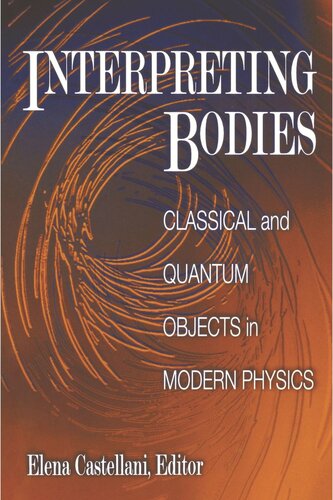

Most ebook files are in PDF format, so you can easily read them using various software such as Foxit Reader or directly on the Google Chrome browser.
Some ebook files are released by publishers in other formats such as .awz, .mobi, .epub, .fb2, etc. You may need to install specific software to read these formats on mobile/PC, such as Calibre.
Please read the tutorial at this link: https://ebookbell.com/faq
We offer FREE conversion to the popular formats you request; however, this may take some time. Therefore, right after payment, please email us, and we will try to provide the service as quickly as possible.
For some exceptional file formats or broken links (if any), please refrain from opening any disputes. Instead, email us first, and we will try to assist within a maximum of 6 hours.
EbookBell Team

4.8
24 reviewsBewildering features of modern physics, such as relativistic space-time structure and the peculiarities of so-called quantum statistics, challenge traditional ways of conceiving of objects in space and time. Interpreting Bodies brings together essays by leading philosophers and scientists to provide a unique overview of the implications of such physical theories for questions about the nature of objects. The collection combines classic articles by Max Born, Werner Heisenberg, Hans Reichenbach, and Erwin Schrodinger with recent contributions, including several papers that have never before been published.
The book focuses on the microphysical objects that are at the heart of quantum physics and addresses issues central to both the "foundational" and the philosophical debates about objects. Contributors explore three subjects in particular: how to identify a physical object as an individual, the notion of invariance with respect to determining what objects are or could be, and how to relate objective and measurable properties to a physical entity. The papers cover traditional philosophical topics, common-sense questions, and technical matters in a consistently clear and rigorous fashion, illuminating some of the most perplexing problems in modern physics and the philosophy of science.
The contributors are Diederik Aerts, Max Born, Elena Castellani, Maria Luisa Dalla Chiara, Bas C. van Fraassen, Steven French, Gian Carlo Ghirardi, Roberto Giuntini, Werner Heisenberg, Decio Krause, David Lewis, Tim Maudlin, Peter Mittelstaedt, Giulio Peruzzi, Hans Reichenbach, Erwin Schrodinger, Paul Teller, and Giuliano Toraldo di Francia.